Education: Stage 1: Exploring the Fetal Alcohol Spectrum (FASD)
- somersetmiracles
- Aug 7, 2025
- 2 min read
Updated: Dec 28, 2025
Educators play a vital role in supporting children affected by prenatal alcohol exposure. By recognising the spectrum of need, understanding the impacts on learning, and implementing effective strategies, educators can foster a nurturing environment that promotes growth and development.
If you have a child in your School with Prenatal Alcohol Exposure or diagnosed Fetal Alcohol Spectrum Disorder (FASD) we will tailor the training around that child's needs where in Stage 1 we dig down into the detail of the symptoms & in Stage 2 we will look at specific strategies that underpin & scaffold needs.
Stage 1:
Aim: To provide an overview of Fetal Alcohol Spectrum Disorder & its co-occurring neurodevelopmental conditions
· Recognise how FASD impacts developmental age & the brain domains
· How the teratogen alcohol informs the spectrum of need and co-occurring conditions
· The impact of alcohol on the brain and its vulnerabilities
· Identify how alcohol is neuro-developmental trauma
· Review developmental milestones in the womb; the lifelong impact of brain damage
· Examine the developmental divergence of peers
· Confabulation, processing & communication
· Safeguarding & risk assessment
. Good practice in accessing support from multi-disciplinary teams
The session will promote good practice in the support of Ofsted & CQC promoting the NICE Quality Standards for FASD.
Good practice in neurodevelopmental support informs us that working towards being ‘FASD Responsive’ includes empowering all members of the team who come into contact with child/ren with prenatal exposure to alcohol.
Although individual indicators vary greatly, this is an illustrative example of what life might be like for someone with an FASD profile:
I might appear to be very articulate but have problems understanding what you had just told me, as well as keeping track of what I was asked to do to correct my behaviour.
I might be very impulsive without thinking of the consequences; and, even if corrected, I may do it again because I have great difficulty learning from experience.
I might appear truculent and challenging and act inappropriately for my age.
I might be anxious and developing mental health issues because I am being bullied misunderstood so often.
I might have real skills and talents, I am unable to demonstrate consistently because my life is so disorganised and stressful.
Online live delivery (90 minutes), includes certification and resources.
Stage 2, 3 & 4: Please click the tab above to go to our Education portfolio
To request further information or to book email us at info@fasdinformed.co.uk
©FASD Informed UK




